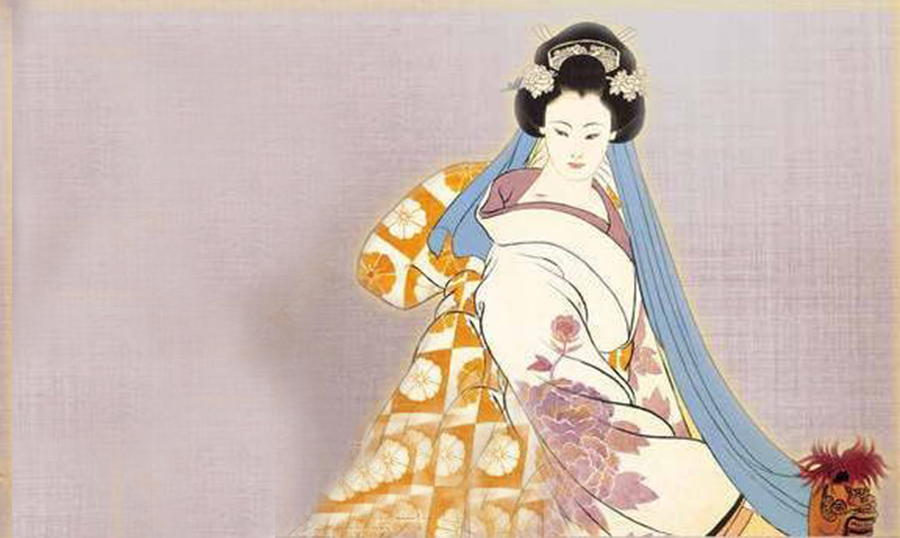Song of the Spring Palace
Last night,
The first peach blossoms were revealed by a warm wind
And the moon shone high above old Weiyang palace
Where Princess Pingyang danced and sang
Then asked for a silk gown for a cold spring
春 宮 曲
昨 夜 風 開 露 井 桃
未 央 前 殿 月 輪 高
平 陽 歌 舞 新 承 寵
簾 外 春 寒 賜 錦 袍
Chūngōng qū
zuóyè fēng kāi lù jǐng táo
wèiyāng qián diàn yuè lún gāo
píngyáng gēwǔ xīn chéng chǒng
lián wài chūnhán cì jǐn páo
Princess Pingyang, Lady Warrior
Princess Pingying (598-623), daughter of Li Yuan, the founder of the Tang Dynasty, raised an army of women, to help overthrow the Sui Dynasty and capture its capital Chang’an. She died in childbirth at the age of 23, celebrated as warrior, dutiful daughter, and devoted wife.
Line two, 未央, Weiyang Palace, literally, endless or never ending, the palace at Chang’an, called the “Endless Place” because of its size.
Wang Changling
During the catastrophic An Lushan Rebellion (755-763), Wang Changling (698–756), was minister of Jiangning County, which included the important city of Nanjing on the Yangtze River. His death in 756 is not explained.
The Title 春 宮 曲
The title is straight forward, 春 spring, 宮 palace, 曲 song.
Poetical Paradox
Arthur Koestler, in his book The Act of Creation, observed that new ideas are the juxtaposition of paradoxical concepts.
Peach blossoms and warm winds signify the spring season, the renewal of life. In China, the peach is a symbol of immortality. Yet, the beautiful and young Princess Pingyang will soon die. In line three of the poem, the princess sings and dances, 歌 舞, then receives as a favor, 承 寵, chéng chǒng, a silk gown, which we know know, could not fend off the cold touch of death.
The rhyming association of the princess Pingyang and the palace Weiyang is more than coincidental. The transitory beauty of the immortal peach tree and its beautiful blossoms, the forever Weiyang Palace, and our heroine Princess Pingying, all symbolize the fragility of beauty and life itself.
In real time, rebel forces were destroying the Tang capital at Chang’an along with its many palaces including Weiyang.
Wang Changling did not know it, but spring would return to the Tang dynasty. The rebel forces would eventually be defeated, the rule of the Tang Dynasty would continue, but not forever.












